Talented and tormented outsider who is rightly celebrated today as one of the most refined masters of the gothic genre, Leo Perutz, to escape the distressing bottlenecks of reality, turns his gaze to the vast field of memories of Antiquity and weaves a very personal dialogue with the shadows of the greats of the past, the only ones capable of alleviating his exacerbated solipsism.
di Paul Mathlouthi
Mathematician marked by a sophisticated, baroque and imaginative literary vein, considered a genius by Ian Fleming, loved by Borges and idolized by Alexander Lernet Holenia, who deferentially recognized himself as his debtor and pupil, Leo Perutz (1882 - 1957) enjoyed bad press for a long time in our country and elsewhere, partly due to his proverbial bad temper which did not allow him to win the fickle and touchy sympathies of the critics in life, but above all by virtue of continuing of that tough twentieth-century prejudice that he sees in the writers of fantastic tales of the obscure and backward champions of the Reaction, as it was said in the short century that we scrambled to set aside in such a hurry. Playing with history, envisioning alternative outcomes of known events, letting other skies and other lands glimpse, hoping for possible futures has always been considered a suspicious attitude by the zealous guardians of cultural orthodoxy, a creeping form of dissent all the more dangerous if, as in the case of Prague writer, is accompanied by a morbid attraction towards the Vanquished, that is to say those who, in contempt of the spirit of the time in which fate has forced them to live, choose to take sides in partibus infidelium, not disdaining, when circumstances require it, to consign oneself to damnation.
The very strong smell of sulfur emanates from the pages of his novels, but if a sworn critic such as Ladislao Mittner felt it was necessary for this to exclude Leo Perutz from the golden canon of German-language literature, of quite the opposite opinion (for which we are immensely grateful) was the lamentation Roberto Calaso who, regardless of the contemptuous judgment of Bertolt Brecht, in recent years has republished some of the most significant works of the talented and tormented outsider who, removed from the oblivion to which militant exegesis had relegated him, is now rightly celebrated as one of the finest masters of gothic genre. To escape the distressing bottlenecks of reality, the writer, an angry pessimist, turns his gaze to the vast field of memories of Antiquity and weaves a very personal dialogue with the shadows of the greats of the past, the only ones capable of alleviating his exacerbated solipsism.
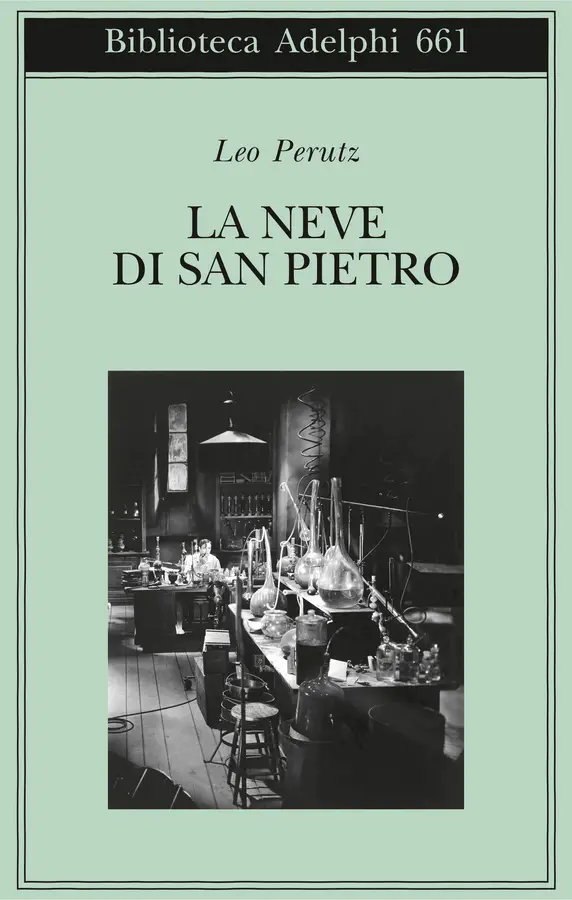
This is what happens to the anti-hero of the novel The snow of San Pietro, the latest in chronological order of a sought-after anthology of titles by the enigmatic Bohemian scholar that the publishing house Adelphi has included in its prestigious catalog. The story opens in the aseptic candor of a hospital room where the protagonist, Friedrich Amberg, slowly regains knowledge. To the nurses who assist him and tell him about a serious car accident in which he was involved, the patient replies that he has suffered the injuries he has on his body due to the beatings received by a group of peasants in revolt who allegedly attacked him during a riot. The curious news soon makes its way around the corridors and reaches the ears of the head physician who, incredulous, goes to the patient's bedside and invites him to tell his story. With difficulty re-tying the lost threads of memory, the young man declares that he went to Morwende, a remote village in the heart of Westphalia, a place located out of time and barely lapped by Modernity, at the invitation of the eccentric local squire, Baron von Malchin, who earlier she had hired him as a medical doctor.
The nobleman welcomes him at first with a certain coldness, dictated by the difference in rank, but between the two a relationship based on mutual esteem is established along the way. One evening, invited to dinner at the manor house, the doctor learns from the voice of his host the disturbing project he has in mind to implement. Von Malchin declares himself a staunch supporter of the absolute monarchy of divine right and makes no secret of the profound contempt he has for liberal democracy, guilty, according to him, of having determined the disenchantment with the world. The people have lost faith in saving mission of sovereigns because, thanks to the spread of progressive doctrines, that religious tension, that mystical rapture that was the fons juris on which society was based in the world of Tradition.
Continuing to outline the contours of theregressive utopia in which he believes with iron determination in front of the astonished eyes of the doctor, the Baron affirms that, on the basis of some studies conducted by him, the main phenomena of religious fanaticism, from the Dolcinians movement to the Hussite revolts, occurred in Europe in those rural areas where wheat was affected by a particular toxin with hallucinogenic powers, known in ancient herbariums as "St. Peter's snow". With the help of Dr. Kallisto Tanaris, nicknamed "Bibiche", a fascinating biologist who had been a fellow student of Amberg, von Malchin intends to reproduce the witch-like substance to administer it to his farmers, diluted in beer, during a sumptuous banquet that he intends to offer to the inhabitants of the district on the occasion of the celebrations for his birthday.
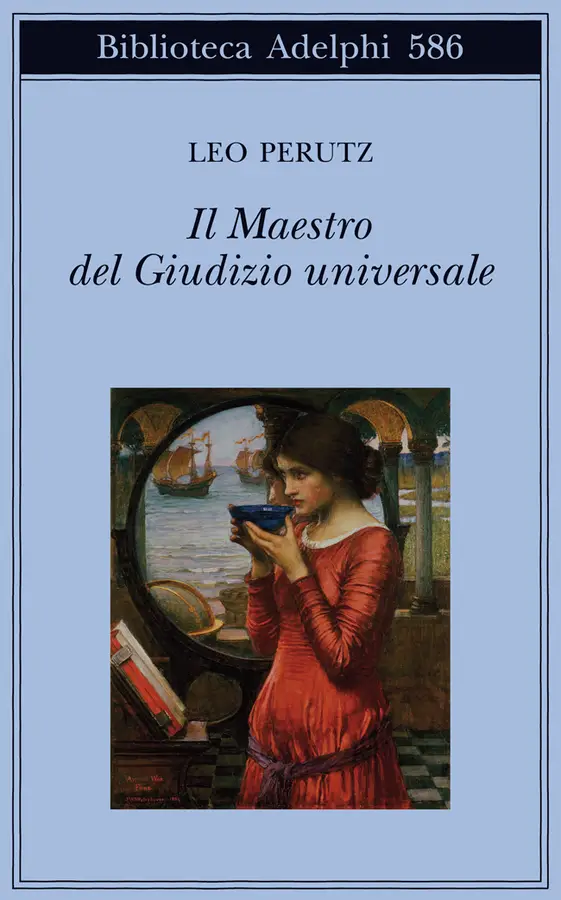
At that juncture he would have shown them the direct descendant of the last Hohenstaufen, a teenager named Federico whom he adopted after having found him in a farmhouse in the Bergamo area (sic!) And they, pervaded by religious fury, would have recognized and acclaimed him again, re-establishing so does the legitimate authority. "Do you see the house?"- declares the Baron showing his friend the house where the young heir designated rests unaware -"That's the Kyffhauser, is the secret Emperor lives in anticipation. I am paving the way for him. And one day I will tell the world the words once shouted by Manfredi's Saracen servant to the revolting citizens of Viterbo: “Open the doors! Open hearts! Look, your lord, the Emperor's son, has come! "» [1].
Von Malchin's hallucinatory purpose is actually brought into being, but now the spirit of the time has irremediably changed direction. Sickles and rifles are rampant across the plain, according to the Baron's predictions, but this postmodern Vendée soon reveals, ironically, an entirely different ideological connotation from that hoped for by von Malchin: the peasants, marching under the red flags to the song of the International, besiege his castle and, guided by Bibiche herself transformed into Erinyes, a possessed priestess of the new revolutionary heresy, they consign him to the purifying embrace of the flames. The dream of a return to the past, applied to the letter, eventually turned into a nightmare between which the sorcerer's apprentice himself found death.
In this novel, released on the eve of Hitler's seizure of power, Leo Perutz offers us a twentieth-century reinterpretation unusual, but no less sulphurous and disturbing, of the Germanic myth of the sleeping Emperor who, as legend has it, he will return at the end of time to redeem humanity and the world, in which the protagonist's personal drama - a slave to an obsession and forced to measure himself against a Destiny against which nothing is possible and who enjoys playing with him like a cat with a mouse before delivering the fatal blow - is inscribed in a frame of rigorous and rational reconstruction of the historical and social context where, however, suddenly, the Irrational peeps out like a will-o'-the-wisp and, giving body and substance to the shadows generated by the sleep of Reason, he lights the fuse of the Imagination, opening unexpected scenarios and unusual paths with unpredictable results before the eyes of the reader.
That of the predestination and its inevitability is a recurring theme in the novels of the Bohemian writer. Situations and contingencies change, of course, but we find ourselves at the court of the King of France grappling with a palace conspiracy aimed at assassinating the sovereign, in picaresque and Sanfedist Spain invaded by Napoleon's troops or in Russia devastated by the tremors of the October Revolution, the choices of individuals are always heterodirected by arcane, inscrutable forces, who contend for their souls; And the Devil, the great protagonist of these metaphysical thrillers, willingly puts his hand in shuffling the cards and entangling events in an inextricable way, propitiating improbable exchanges in person, as happens to the protagonists of The Swedish knight, or hiding in the pages of a cursed book, the possession of which involves the ringing of a disturbing series of crimes consumed on the streets of Habsburg Vienna. A man with a solid scientific background, Leo Perutz is nevertheless irresistibly seduced by the Supernatural, especially when he is tinged with the colors of darkness:
“Fear and fantasy are linked by an indissoluble bond, - affirms the writer through the mouth of one of his characters -“ (…) whoever has a particularly fervent imagination is at the same time obsessed with a thousand anxieties, a thousand terrors (…). Do you know fear? (…). Do you really think you know her? (…). The real fear (...) that overwhelmed the caveman when, outside the circle of light of his fire, he faced the darkness, while the lightnings darted down from the clouds and the scream of the primordial saurians echoed from the swamps, the primeval fear of the lonely creature ... none of us contemporaries can claim to know it, none of us would be able to bear it. And yet the sensor, which is able to arouse it in us, is not dead, indeed it is alive, although perhaps in the throes of a millennial dullness: it does not give signs or signals ... our brain carries within itself a monster in hibernation "(2 ).
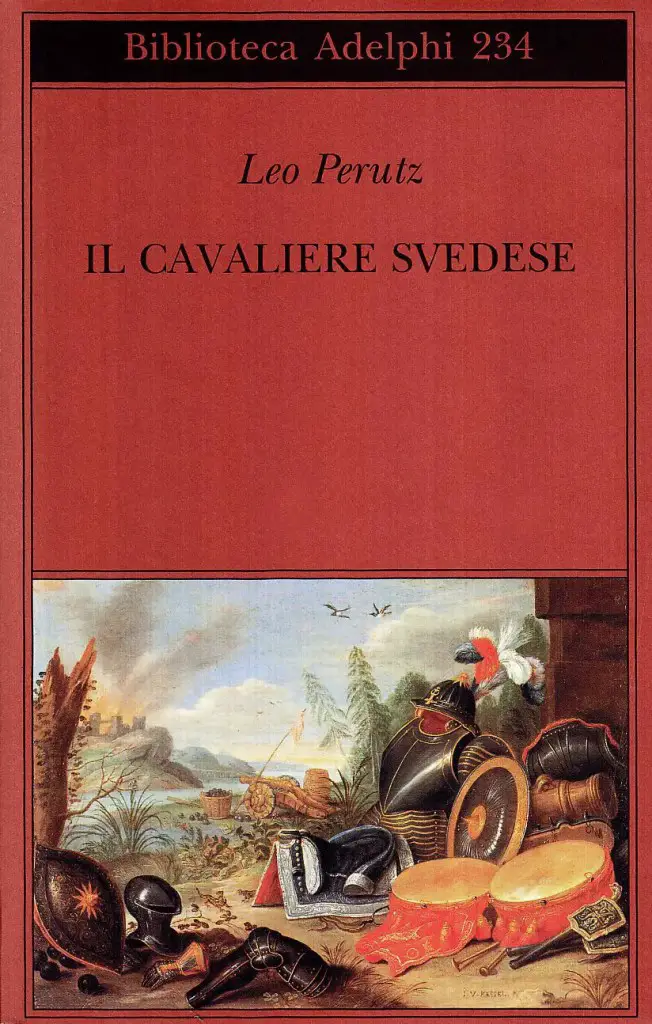
An awareness that naturally places Leo Perutz in the bed of an illustrious literary tradition, that of Central European fantastic realism, alongside Gustav Meyrink, Max Brod, Alfred Kubin. Writers very different but unconsciously united by the fact that their wandering lives have touched and in some cases crossed along the streets of Prague.
Capital of magic and occult knowledge, as in the Middle Ages Toledo was, this splendid city, where the German rigor of architecture coexists with the Slavic soul, fatalist and dreamer, is elected as a privileged abode by Emperor Rudolph II of Habsburg , who in the sixteenth century granted asylum at his court to Neo-Platonic magicians, astrologers, kabbalists and philosophers persecuted elsewhere by the Holy Inquisition. The Karol bridge, the district of Santa Maria della Neve, not far from Piazza Jungmannovo where in 1415 Jan Hus was burned at the stake, forerunner of Luther who with his vehement oratory from the pulpit of the Bethlehem Chapel incites the Bohemian Brothers to civil disobedience and to the revolt against the corruption of the clergy of Spanish observance, the Jewish ghetto propped up in the night by badly lit rooms where rabbis recite, in the dim candlelight, the formula to awaken the Golem, clay monster called to take revenge against those who persecute the scattered children of Israel, the cobblestones of the streets of Mala Strana that still retain the echo of the footsteps of Cornelius Agrippa and Paracelsus, winding through the numerous historic residences with indecipherable noble coats of arms that compete for the honor and the burden of having hosted none other than the Doctor Faustus, a character who actually existed, it seems, a doctor and investigator of the occult, who would have fueled the imagination of Goethe and Thomas Mann: everything here refers to a distant past and to ancestral forgotten cults.
City used to court Death, Prague, overflowing with phantasmagoria in which swarms of ghosts roam undisturbed at dusk, peeping out at every intersection to ensnare the unsuspecting wayfarers, as happens in the church of San Giovanni al Lavatoio, where it is said that at the stroke of midnight it appears a monk in black driving an infernal chariot drawn by two monstrous goats with flaming eyes, forced to wander restlessly around for offering God a counterfeit coin. Souls in pain of scoundrels condemned to the gallows, acefal knightsi, corpses with daggers in the chest of haughty noblewomen guilty of heinous infanticides meet under the walls of the castle of Hradcany as at a sabbath. A majestic stage suspended between heaven and earth on which, as in an allegorical representation, a colorful crowd of characters, heroes and scoundrels, philosophers and impostors throng, saints, heretics and possessed, each one engaged in playing a pre-established role under the dreamy gaze of the Emperor who of this glowing caravanserai disputed between Heaven and Hell is the true comedian, the supreme puppeteer, he was the first living archetype, at one time high priest and sacrificial victim of the Luciferian liturgy from Prague.
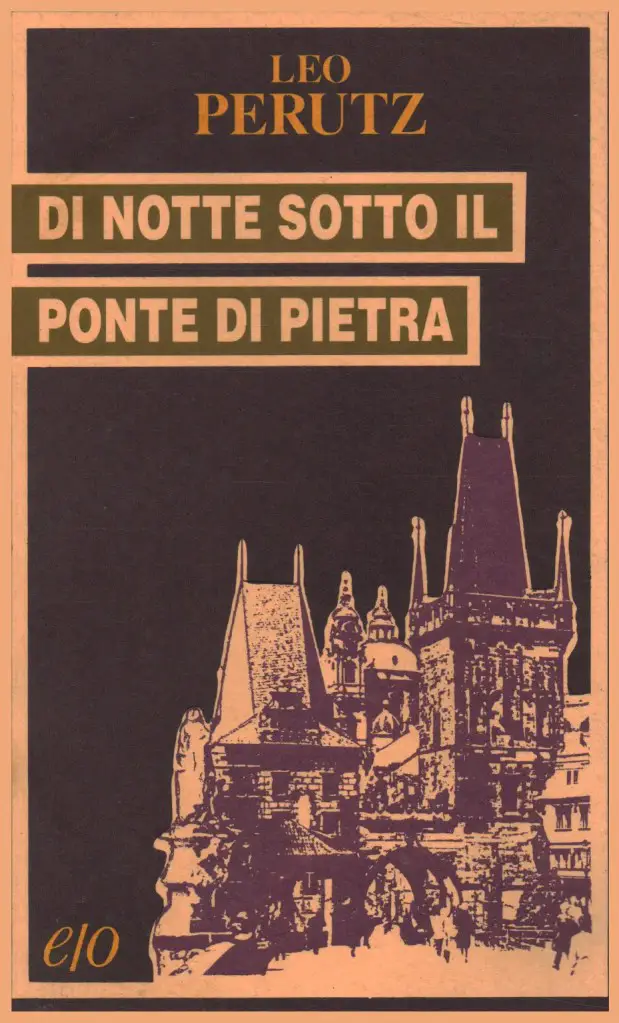
In the collection of short stories entitled "At night under the stone bridge" Leo Perutz describes him barricaded in the most secluded rooms of his home, indifferent to the affairs of state, deaf to the rough roar of the world that furiously froths like the stormy sea just beyond the ramparts, with Flanders torn apart by the bloody fratricidal war that opposes the Catholics to Protestants while large portions of Hungary lie under the Turkish yoke, intent only on filling the wunderkammer that he had set up in the sumptuous rooms suspended above the Deer Moat with wonders. Jacopo Strada, a very powerful and omnipresent court antiquarian, has the task of recovering the strangest objects from all over the world and at any price to indulge the sovereign's frenzied collecting craving.
Raised in the Escorial, under the lash of the rigid Counter-Reformation discipline imposed on him by his uncle Philip II of Spain who wanted to make him a champion of the faith, in his youth Rodolfo developed a deaf hatred towards the Jesuits, guilty in his eyes of plotting to undermine him from throne and thus favor (as indeed will happen) the more resolute brother Mattia. A hatred of him that, in a sort of perverse compensation mechanism, grows over time together with a real fixation for the occult. Obsessed with the idea of predestination connected with the high office of imperial dignity to which he has been called by fate, he questions the imaginative mechanical automata with whom he surrounds himself as if they were his advisers, he scrutinizes the bizarre preciousness that crowd his private bazaar in an attempt to perceive omens, signs, premonitions of the future.
Superstitious, hunted down by the pangs of loneliness, the Emperor easily falls prey to those who, through mellifluous flattery, know how to subtly manipulate his Saturnian nature to his advantage, like Mordecai Meisl, a grim and oblique figure of a usurer who lends him the necessary money. to cultivate his eccentric obsessions, first of all study of alchemy. To seduce the darkened heart of the Emperor is the feverish restlessness felt at the idea of being able to change the course of events at will, the exquisitely Renaissance dizzying emotion procured by the hope of seeing man triumph, through the complicated art of transmutation of metals, on the immutable laws established by God, even at the cost of selling the soul to the Devil. A Promethean challenge that fascinates him, takes him from sleep, seduces him and keeps him alive, but also draws him the dangerous enmities of many influential members of his entourage.
The apostolic nuncio Filippo Spinelli writes in alarmed tones to Pope Paul V Borghese saying he is sure that Satan has insinuated his goat foot in the secret rooms of Hradcany and urges him to intervene as soon as possible and with a firm hand to bring the Empire back under the sign of true wedding ring. The Pope then entrusted Chancellor Philipp Lang von Langenfels, leader of the Catholic "party" at court, with the task of secretly initiating negotiations with Archduke Matthias to probe his possible willingness to oust his brother. He does not allow himself to be repeated twice: unbeknownst to the Emperor, engaged in the work of the Diet of Regensburg, he reunites the Magyar nobles who acclaim him King of Hungary and put their weapons at his disposal so that he may march on Prague and claim with the strength as it deserves.
Closed in the grip of the siege, abandoned by his closest collaborators who, in order to save his neck, make an act of submission towards the usurper, Rodolfo can only give up the throne and the crown. Relegated to an inaccessible wing of the imperial palace, watched over by the guards of his own entourage, he will spend the days left to live as a prisoner in his own home, prey to recurrent nightmares and hallucinations. The departure of the lunatic monarch marks a progressive exacerbation of the religious conflict in progress. The humanist Neoplatonism and the hermetic - kabbalistic movements, left orphans of the Augustan protection, lose their cultural battle, between accusations and accusations of possession, with the consequent aftermath of trials and the inevitable condemnations.
Contention between Catholics and Protestants, the undisputed masters of the scene, Europe is moving in forced stages towards the bloodbath of Thirty Years' War. The abdication of Rudolph II also represents the first, decisive blow inflicted on a certain traditional idea of royalty, borrowed from the Middle Ages, which sees in the figure of the Emperor a sort of intangible metaphysical hypostasis endowed with two natures, the first human, subject hence to the consumption induced by old age, but the second is incorruptible and eternal, which in a virtually endless succession transmigrates from one sovereign to another, the essence in which the soul itself resides, the chrism of imperial authority. An outdated conception of power that does not accord with the dismal profile of the gallows raised in the streets of Prague by the Swedes who, having entered the city on the night of July 26, 1648, indiscriminately wreak havoc on the art collections to which the Emperor has consecrated his life. Modernity began its painful gestation at the expense of the dying ancient world: from here to the guillotines the step will be very short.
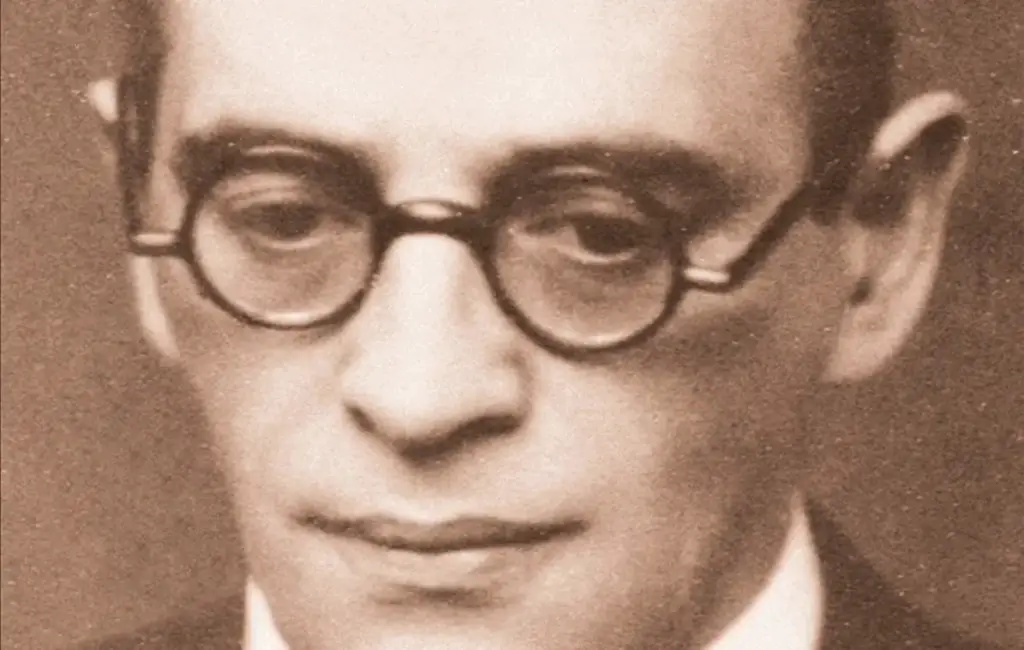
Note:
- Leo Perutz, The Snow of San Pietro, Adelphi, Milan 2016; page 96
- Leo Perutz, The Master of the Last Judgment, Adelphi, Milan 2012; page 185 - 186
